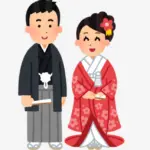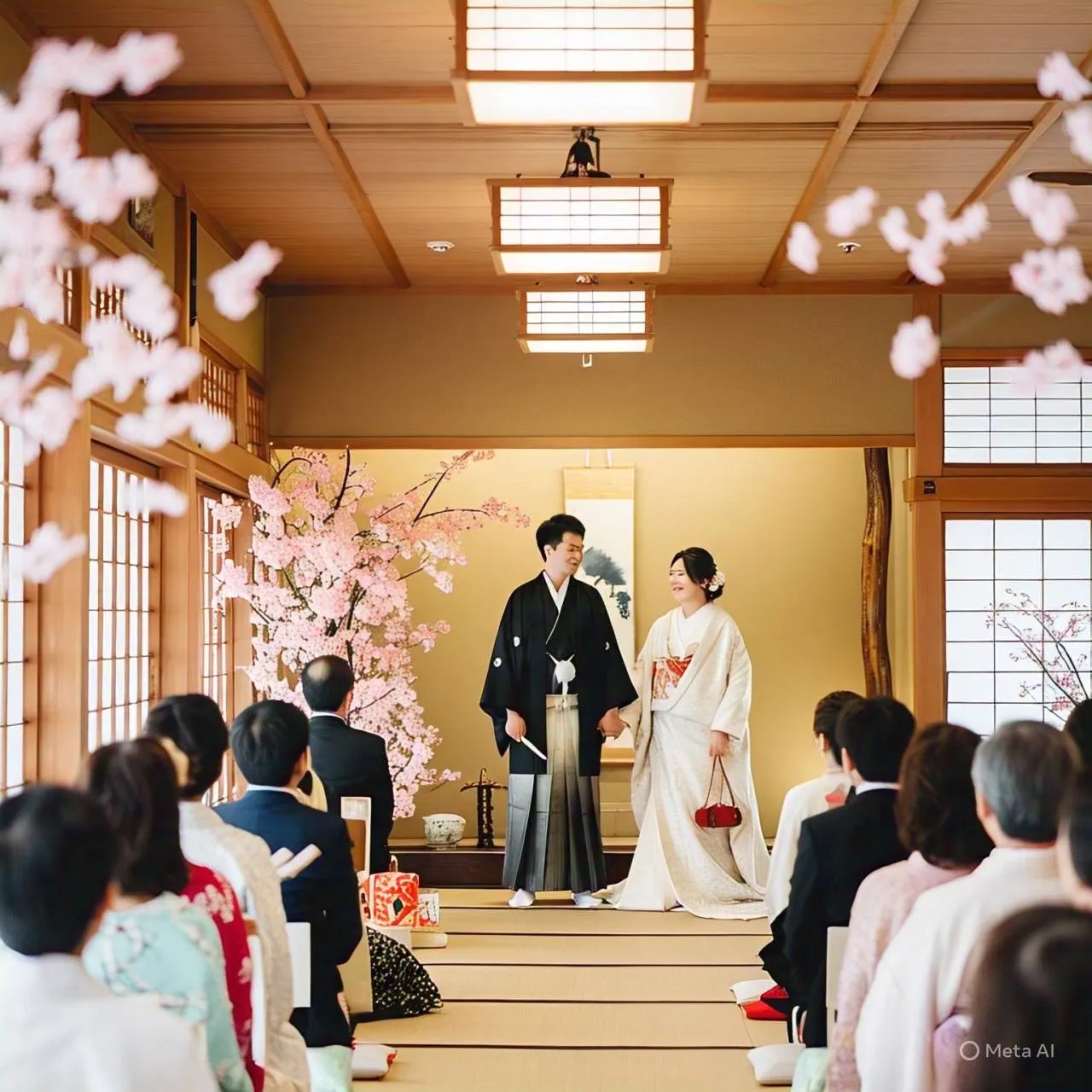If you are interested in the surname system for international married couples in Japan, please read this article first.
Japan is the only country in the world where there is a system requiring the same surname for married couples. I’d like to talk about the same surname system and the reasons it is considered to be a discriminatory system against women by global society in this article. I also added the information of 事実婚(jijitsu kon = common-law marriage) in Japan.
(目次=Table of contents)
- How Does the Surname System in Japan Work?
- Optional Separate Surnames Are Common Worldwide
- Advice from CEDAW to the Japanese Government
- It is Sad That People Have to Give up Marriage Because of Surnames
- Is Common-law Marriage a Good Alternative for Couples Who Are Against the Same Surname System in Japan?
How Does the Surname System in Japan Work?
Japan is the only country in the world where there is a system requiring the same surname for married couples. Before discussing the same surname system, let me explain the history of the surname system in Japan briefly.
(I referred to the websites of Japanese Ministry of Justice*¹ and Kodaira city in Tokyo*² in order to check the history of Japanese surname system).
Only People in Privileged Classes Could Use Surnames in the Edo Period (1603~1868)
It is said that only those of privileged classes such as 武士(bushi = samurai) and 公家(kuge = nobles) were allowed to use their surnames publicly. In addition to these two classes, people in the professions such as doctors and scholars were also allowed to use surnames in public.
Although it was prohibited for commoners (farmers, merchants, craftsmen, etc.) to use their surnames publicly*, they were allowed to have surnames.
*There was an exception where they could use their surnames for their stores and business.

The Use of Surnames Became Mandatory in the Meiji period(1868~1912)
On September 19, 1870 (Meiji 3), it was allowed for commoners to use their surnames publicly by the Meiji government. At this time, it depended on the individuals whether they use their surnames in public or not. However, the Meiji government changed their policy and made the use of surnames mandatory on February 13, 1875 (Meiji 8). It is said one of the reasons of this duty was so that the Japanese army could register the information of individual citizens in their registry.
The Change from Separate Surname System to Same Surname System
On March 17, 1876 (Meiji 9), married women were required to use their maiden names even after they married. Although officially there was a separate surname system for husbands and wives in Japan, wives using their husband’s surname in public had become a habit.
The Civil Code (old law) was enacted in 1898. The Meiji government valued 家(ie = literally means a household. It also refers to a family’s lineage) more than individuals, and 家制度 (ie seido) is the Japanese family system stipulated in the Civil Code under the Meiji Constitution . In this system, a husband and wife should share the same house, and it was required for married couples to share the same surname. 家制度(ie seido) lasted until May 2, 1947 (Showa 22).
The revised Civil Code was enacted on December 22, 1947.
From Japanese Civil Code (Part IV and Part V) Article 750 (English version).
“Surname of Husband and Wife
A husband and wife take the surname of either the husband or the wife, as decided at the time of marriage”
Optional Separate Surnames Are Common Worldwide
Married couples in China and South Korea are required to have different surnames as a rule. How about other countries? Optional separate surnames for married couples are common worldwide, so people can choose either their original surname or their spouses’ surname in most countries. Japanese people (or I should rather say mainly Japanese politicians) have not changed the mandated same surname system pretending not to see how other countries have changed their policies and allowed for optional separate surname systems.
| Country | The year they changed to optional separate surname system |
| the U.S. | in 1970’s |
| Italy | in 1975 |
| Portuguese | in 1977 |
| Sweden | in 1983 |
| Germany | in 1993 |
| Brazil | in 2002 |
| Thailand | in 2005 |
| Philippines | in 2010 |
| Austria and Switzerland | in 2013 |
| Türkiye | in 2014 |
Advice from CEDAW to the Japanese Government
CEDAW (Committee on the Elimination of Discrimination against Women) advised in October 2024 that the Japanese government revise the provisions of the Civil Code that force married Japanese couples to have the same surname after marriage.
It is not the first time, but the fourth time CEDAW has proposed the revision of the same surname system to the Japanese government (in the past, it happened in 2003, 2009, and 2016).
CEDAW criticizes the current same surname system in Japan as discrimination against women because they consider the system forces Japanese women to have unfair burdens (presently, 94.5% of married women use their husbands’ surnames after marriage). The following are more concrete examples of burdens that I could come up with.
(A) Women lose their own identity by changing their maiden names
It is said that more than 150,000 different surnames exist in Japan. China and South Korea are also located in East Asia and geographically close to Japan, and there are many cultural similarities. However, China and South Korea are very different from Japan for their quantity of surnames. Seemingly, there are about 6,000 surnames in China and about 270 surnames in South Korea. So, it is unique that there are more than 150,000 surnames in Japan, and surnames often have an important role to identify individuals. If your surname is rare in your country and you hardly see anyone who has the same surname, it is natural for you to regard your surname as a part of your identity.
(B) The current surname system puts women at a disadvantage in both their professional and personal lives
Changing your surname means changing your ID information for everything. In general, Japanese women need to take procedures to change My Number Card (Individual Number Card), national healthcare insurance, social insurance, driver’s license, bank account, credit card, cell phone, passport, and etc. It is required to submit official documents issued by city hall such as residence certificate or certificate of family register for procedures of name changing. City halls in Japan close on weekends, so women who work on weekdays as full time employees must take a day off (or a half day off at least) to obtain the certificates.
Many companies in Japan allow female workers to keep using their maiden names for business cards, e-mail address or company internal documents after marriage. On the other hand, there are some companies that don’t allow female workers to use their maiden names at all. It is because an employee’s real surname after marriage needs to be written on official documents like those for social insurance or pay slips regardless of which company they work at, and they want to avoid confusion.
(C) The choice of surname limits women’s freedom of decision-making
The Japanese government claims that the current same surname system does not harass women’s freedom because the surname system has gender equality so that married couples can choose either the husband’s surname or the wife’s surname at their own will. Personally, I think it is obvious CEDAW concluded that there is no gender equality in the system. This is not only because of the fact 94.5% of women changed their surnames after marriage, but also because the current surname system ignores Japanese couples who want to use their original surnames after marriage.

It is Sad That People Have to Give up Marriage Because of Surnames
What if neither the man nor the woman wants to change their maiden name? Are there any good solutions? Unfortunately, they need to give up their marriage unless either of them gives in and agrees to change his/her surname. I found interesting data from a questionnaire that a Japanese matchmaking support service company had for 2,400 single men and women in their 20s and 30s in 2020.
According to the questionnaire,
- 1.3% of people gave up marriage or decided to choose common-law marriage because of the same surname system.
- 21.2% of men answered they would give up marriage if their partner can not marry and change their surname (for women, it was 13.5% who answered they would give up marriage).
- 31.2% of men and 50.2% of women answered they would change their surnames if their partner doesn’t want to change their surname after marriage.
- 20% of men and 21.2% of women answered they would use separate surnames if an optional separate surname system is accepted in Japan.
The data showed that Japanese men tend to have a stronger desire to keep their surnames after marriage than Japanese women. This tendency also might be contributing to limiting women’s freedom of decision-making in Japan.
Is Common-law Marriage a Good Alternative for Couples Who Are Against the Same Surname System in Japan?
Common-law marriage, also known as informal marriage, de facto marriage, non-ceremonial-marriage, marriage by habit and repute, or sui iuris marriage, is called 事実婚 (jijitsu kon) in Japanese. In Japan, common-law marriage means a relationship in which two people are not legally married but are considered to be married per social customs. Just two people living together is not regarded as common-law marriage, and it is required that the two have an intention to marry legally. In other words, the only difference between common-law marriage and legal marriage is whether they submit a marriage certificate or not.
I heard that common-law marriage is becoming common in some European countries, but it is not in Japan. It is estimated that people who choose common-law marriages account for 2-3% of the adult Japanese population. Which means there are about 1.23 million people in common-law marriage nationwide. According to a survey that a certain research company conducted targeting approximately 500 common-law marriage people in March 2025, about 30% of them chose common-law marriage because they were against the same surname system.
This is my opinion, but common-law marriage is not a good alternative for Japanese couples who want to have different surnames, because there are some demerits of common-law marriage in Japan. For example, there are tax deduction systems for income, medical expenses, and inheritance, but they are available only for spouses who are legally married.
Unfortunately, as I already mentioned, if Japanese couples want to be together but don’t want to change their surname, they have to choose common-law marriage or give up marriage in the worst case.
Personally, I support the system of optional separate surnames. I strongly hope the Japanese government will revise the current law to give more options of surnames for married Japanese couples.

References
*¹Ministry of Justice (in Japanese) https://www.moj.go.jp/MINJI/minji36-02.html
*² Kodaira city in Tokyo (in Japanese) https://www.city.kodaira.tokyo.jp/kurashi/022/022836.html


